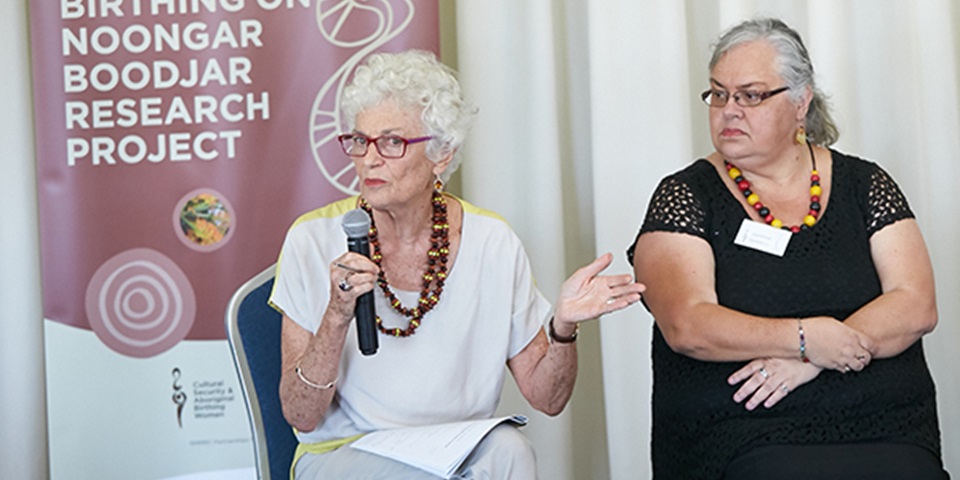Birthing on Noongar Boodjar
Areas of research
Aboriginal maternal care

Australian maternity care systems have not adequately considered the foundations required to nourish healthy futures for Aboriginal families.
What was the need for this project?
Across the life course, starting from in the womb, disadvantage exists in a complex web of personal capacity, family circumstances, community cohesion and life events, shaped by interconnected social, economic, health and educational influences. A child’s earliest years undeniably shape their life chances and opportunities. Gaps between the least and most disadvantaged become apparent in a child’s first years of life and have a cumulative effect. From birth, Aboriginal and Torres Strait Islander people are the most disadvantaged people in Australia.
The Birthing on Noongar Boodjar (Cultural Security & Aboriginal Birthing Women) collected evidence which provides a deep understanding of the multiple factors which contribute to problems associated with providing culturally secure maternity care for Aboriginal women. This includes addressing racism in health settings and strengthening the Aboriginal workforce; and the cultural competence of the whole health system.
How the project was completed
The team set out to learn from Aboriginal women who had given birth on Noongar Boodjar what their maternity experiences were; and from midwives, their experiences of providing care to Aboriginal women.
Interviews were conducted with Aboriginal mothers, senior women and Elders to examine what women want and expect from their maternity health services to fully understand the impact of fragmented maternity care.
Ngangk Yira researchers then worked closely with Aboriginal and non-Aboriginal partners from across the community, including the health and higher education sectors, to collect and interpret the evidence.
Results and achievements for this project
Through five years of accumulating evidence, Birthing on Noongar Boodjar identified many service gaps, issues and barriers within the Western Australian maternity care system.Both Aboriginal and non-Aboriginal participants identified the negative impact of racism and racial stereotyping on Aboriginal women's birthing experiences. The research also recognised that better access to Aboriginal staff and family support during pregnancy and childbirth helped empower Aboriginal mothers.
The findings from the research were the basis of three recommendations to inform health policy decisions related to health systems changes, workforce and health professional cultural education, presented to the WA Health Minister for action. The Ngangk Yira team are now focused on translating the evidence to the co-design of Culturally Secure Maternity Services for Aboriginal Women.
Areas of research
Aboriginal maternal care
.png?sfvrsn=8a83ef4a_0)